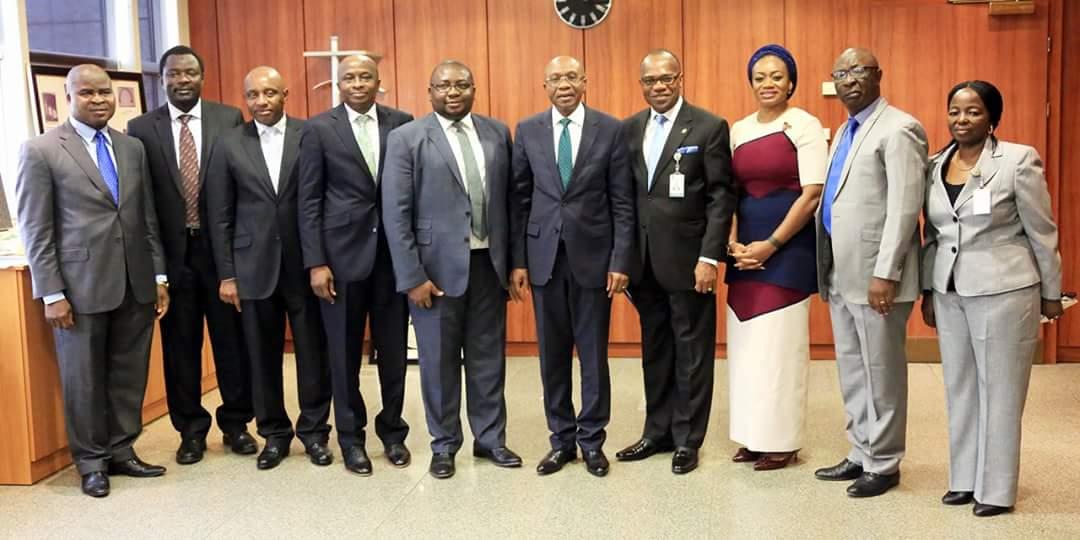At a time chief executives of Nigerian businesses are nursing fear of policy uncertainties and unpredictable direction of the economy in 2018, about 22% of South Africa’s CEOs are ‘very confident’ of their own company’s growth in the next 12 months.
Also, about 37% of CEOs in SA are ‘very confident’ about their own company’s prospects for growth over the next three years. Besides, the US reinforces its lead on China as a target market for growth in 2018.
Key findings of PwC’s 21st survey of 1,293 CEOs around the world show that more than half of CEOs globally expect their headcount to increase.
Worldwide the majority of CEOs are optimistic about the economic environment amid geopolitical uncertainty, corporate misconduct and the impact of artificial intelligence on the future job market. This is according to one of the key findings of PwC’s 21st survey of 1,293 CEOs around the world.
Fifty-seven percent of global business leaders say they believe global economic growth will improve in the next 12 months. This percentage is almost twice the level of last year (29%) and the largest ever increase since PwC began asking about global growth in 2012.
However, top business owners in South Africa are less confident than their global counterparts regarding their growth prospects in 2018. Only 22% of CEOs in South Africa are “very confident” of their company’s own growth in the next 12 months – 20 points below the global average (42%). However, South African CEOs – 37%, compared to 45% globally are slightly more confident about their own company’s prospects for revenue growth over the next three years. In addition, 37% of South African CEOs also expect global economic growth to improve in the next 12 months – 20 points below the global average.
Commenting on the survey results, Dion Shango, CEO of PwC Southern Africa, says: “CEOs’ optimism in South Africa is more tempered than that of the developed economies, especially regarding their own organisations’ prospects for revenue growth. The state of the economy, unemployment and political uncertainty, among other issues, are casting a shadow over business expectations.” Looking at the results by country, it’s a mixed bag.
CEOs’ outlook improved in several key markets, including in Australia (up 4% to 46%) and China (up 4% to 40%), where the share of CEOs saying they are “very confident” in their own organisation’s 12-month growth prospects rose.
In the US, CEOs’ confidence has recovered. After the US general election last year, the early focus on regulation and tax reform by the new administration has seen confidence in business growth prospects for the year ahead rising significantly – from 39% in 2017 to 52% in 2018. North America is the only region where a majority of CEOs are “very confident” about their own 12-month prospects.
In the UK, with Brexit negotiations only recently reaching a significant milestone, business leaders’ drop in short-term confidence is unsurprising (2018: 34% vs. 2017: 41%).
The global survey results, based on interviews with almost 1,300 CEOs from 85 countries, were released at the World Economic Forum annual meeting in Davos yesterday. In South Africa 41 CEOs from a broad spectrum of listed and privately-owned companies participated in our online survey.
CEO confidence in the US market extends overseas, with non-US based CEOs once again voting it the top market for growth in the next 12 months. This year, the US reinforces its lead on China (46% US vs 33% China, with the US lead over China up 2% compared with 2017).
Germany (20%) remains in third place, followed by the UK (15%) in fourth place, while India bumps Japan as the fifth most attractive market in 2018.
South African CEOs named the US (32%), the UK (27%), and China (24%) as the three most important countries for their organisation’s overall growth prospects over the next 12 months.
According to PwC, global CEOs are increasingly concerned about broader societal threats – such as geopolitical uncertainty, terrorism, the rise of populism, and climate change – in addition to direct business risks such as cyber threats and the speed of technological change.
South African CEOs’ concerns around a broad range of business, societal and economic threats have risen. CEOs are “extremely concerned” about social instability (South Africa: 98%; Global: 73%); over-regulation (South Africa: 93%; Global: 83%); unemployment (South Africa: 93%; Global: 50%); uncertain economic growth (South Africa: 93%; Global 74%); exchange rate volatility (South Africa: 90%; Global: 70%); and populism (South Africa: 88%; Global: 77%).
Of business threats, 37% of South Africa CEOs (compared to 38% globally) said they were “extremely concerned” about the availability of key skills, 41% (compared to 40% globally) cited cyber threats, and 32% (compared to 38% globally) stated the speed of technological change as concerns.
It is notable that 22% of South African CEOs (compared to 14% globally) stated that they are “extremely concerned” about potential ethical scandals. This comes in the wake of a growing number of firms that have suffered reputational damage in the past year because of ethical lapses.
In addition, 39% of South African CEOs (Global: 32%) believe that changes in core technologies of production or service provision, such as artificial intelligence, will be very disruptive for their business over the next five years. A fifth of South African CEOs (20%), compared to 23% globally, think that changes in industry regulation will also be very disruptive to businesses over the next five years.
A year after the Paris Agreement was signed by 190 nations, which saw countries commit to voluntary action on climate change and low carbon investment, CEOs’ concern about the threat of climate change and environmental damage to growth prospects has now doubled to 31% of global CEOs (South Africa: 24%).
This year, 80% of South African CEOs (compared to 79% globally), plan to expand by way of organic growth in the next 12 months.
In addition, 56% of CEOs (compared to 47% globally) plan to enter into a new strategic alliance or joint venture, and only 44% (compared to 42% globally) propose a new M&A. Fifty-nine percent of local CEOs (compared to 62% globally) plan to implement a cost-reduction initiative.
It is notable that 37% of South African CEOs –compared to 58% in 2016 – plan to increase their headcount in 2018, while 54% of global CEOs plan to increase their headcount. In addition, only 18% of CEOs globally, compared to 22% of CEOs in South Africa, expect to reduce their headcount. Two-thirds of South African CEOs say this is mainly due to automation and other technologies.
On digital skills specifically, over a quarter (28%) of CEOs are extremely concerned about their availability within the country they are based, rising to 49% being “extremely concerned” in South Africa, 51% in China and 59% in Brazil.
Investments in modern working environments, learning and development programmes and partnering with other providers are the top strategies being pursued by CEOs to help them attract and develop the digital talent they need.









